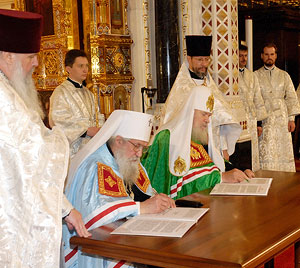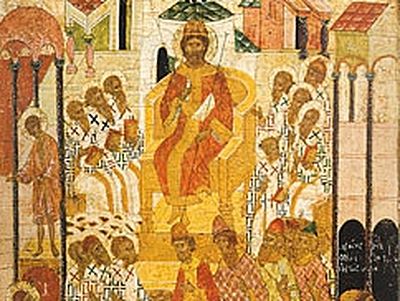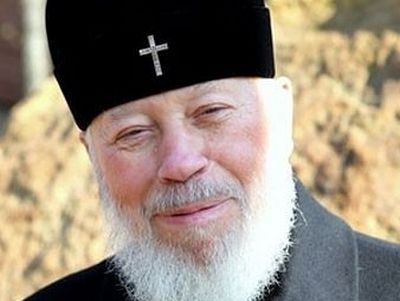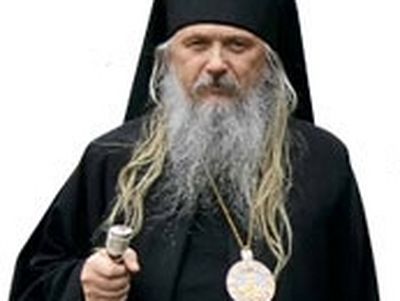
Russian spiritual culture1 was the foundation of this unprecedented month-long project, which began on 17 October and included seven countries and ten cities of Latin America: Cuba (Havana), Costa Rica (San Jose), Venezuela (Caracas), Brazil (Rio de Janeiro, Brasilia, and San Paulo), Argentina (Buenos Aires and Mar-del-Plata), Chile (Santiago), and Paraguay (Asuncion).
Taking part in the spiritual and secular activities of the program were Metropolitan Kirill, head of the Moscow Patriarchate’s Department of External Church Relations, Metropolitan Platon of Argentina and South America, Metropolitan Hilarion, First Hierarch of the Russian Orthodox Church Abroad (ROCA2), and other hierarchs of the ROC3 and ROCA. Also participating was the Sretensky Monastery Choir, considered one of the best choirs in Russia.
“We conversed with people who refused to accept the decision of the Synod of the Russian Church Abroad to reunite4 with the Moscow Patriarchate,” reported the Superior of Sretensky Monastery.
Fr. Tikhon expressed the hope that, “Unless God should allow the opposition of sinful human stubbornness, His grace will be victorious over this spirit of hostility to the Church of Christ, and over conscious opposition to the truth.”
“I am told that such assertions are, perhaps, too strong. But I am deeply convinced that people who have placed themselves outside the Church are criminally playing with salvation—their own and that of the flock entrusted to them. No kind of false tactfulness or political correctness has any place here,” emphasized Archimandrite Tikhon.
In Father Tikhon’s words, the main cause of the “disobedience” of individual representatives of ROCA to their hierarchs is a “lack of understanding of the essence of the Church, the absence of a true ‘spirit of the Church.’”
Archimandrite Tikhon noted, “I asked one of these priests if he really didn’t understand that by deciding on his own to enter into communication with a bishop (Bishop Agathangel of Odessa) who has been suspended from serving [by the ROCA Synod of Bishops], he is putting himself and his flock in the most fearful position possible for an Orthodox Christian—to be outside of the Church of Christ.”
In Father Tikhon’s words, this priest brought forth many objections, but “it seemed that he [the priest] himself understood very well what a fearful position this decision has put him (a kind, intelligent, and energetic priest) and his spiritual children in.”
At the same time, many “church-people,” conveyed Father Tikhon, are puzzled as to “why there has been such a huge undertaking to reach a handful of schismatics, who wouldn’t amount to even two hundred people in any of those countries; and in Chile, for example, not more than twenty.”
“But for me, extremely important (first of all, as one more confirmation of the correctness of our Church’s path) was the blessing of His Holiness, our Patriarch, to take special care specifically for those people who had turned away from the Church. This is yet one more confirmation that the evangelical spirit—commanding the shepherd to leave the many sheep and set out in search of the one lost sheep5—is still alive in our Church,” Archimandrite Tikhon emphasized.
The main significance of the “Days of Russia in Latin America” for the Church, in Father Tikhon’s words, was that “the Russian Church came, in the person of such an impressive and large delegation of clergy and laity, to Her faithful children who for decades have confessed Orthodoxy on the distant Latin American continent; who have remained faithful to the Russian Church; and who have understood the Providence of God in Her [the Church's] reunification and have joined this process.”
“For us, this has been a celebration of like-minded people, people of kindred spirit,” added Archimandrite Tikhon.
One of the most memorable incidents for him was talking to the oldest ROCA priest in Buenos Aires, Father Vladimir Skalon, who, in the Archimandrite’s words, is the “image of a real Russian priest; genuine and wise.”
The Chilean Orthodox in Santiago were yet another [edifying] example. “They are Chilean by birth, and don’t know the Russian or Church-Slavonic languages at all; but on their own they found Orthodoxy and the Russian Church, and this in an extraordinarily deep way. It is both touching and instructive. This sets a person to thinking again about what a great and abundant treasure we have in Russia--even the crumbs and morsels which are here in Chile make people endlessly rich spiritually, give them meaning to life, and a living relationship with God,” concluded Archimandrite Tikhon.
RIA News,



